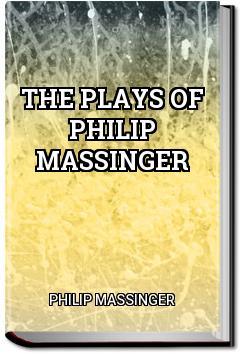UNLIMITED Audiobooks and eBooks
Over 40,000 books & works on all major devices
Get ALL YOU CAN for FREE for 30 days!
The Plays of Philip Massinger
Philip Massinger
How does All You Can Books work?
All You Can Books gives you UNLIMITED access to over 40,000 Audiobooks, eBooks, and Foreign Language courses. Download as many audiobooks, ebooks, language audio courses, and language e-workbooks as you want during the FREE trial and it's all yours to keep even if you cancel during the FREE trial. The service works on any major device including computers, smartphones, music players, e-readers, and tablets. You can try the service for FREE for 30 days then it's just $19.99 per month after that. So for the price everyone else charges for just 1 book, we offer you UNLIMITED audio books, e-books and language courses to download and enjoy as you please. No restrictions.
Artem. And I deny.
Anton. Sir, you dishonour me,
To sue for that which I disclaim to have.
I shall more glory in my sufferings gain,
Than you in giving judgment, since I offer
My blood up to your anger; nor do I kneel
To keep a wretched life of mine from ruin:
Preserve this temple, builded fair as yours is,
And Cæsar never went in greater triumph,
Than I shall to the scaffold.
Artem. Are you so brave, sir?
Set forward to his triumph, and let those two
Go cursing along with him.
Dor. No, but pitying,
For my part, I, that you lose ten times more
By torturing me, than I that dare your tortures:
Through all the army of my sins, I have even
Labour'd to break, and cope with death to the face.
The visage of a hangman frights not me;
The sight of whips, racks, gibbets, axes, fires,
Are scaffoldings by which my soul climbs up
To an eternal habitation.
Try now for FREE!

"Love your service - thanks so much for what you do!"
- Customer Cathryn Mazer
"I did not realize that you would have so many audio books I would enjoy"
- Customer Sharon Morrison
"For all my fellow Audio Book & E-Book regulars:
This is about as close to nirvana as I have found!"
- Twitter post from @bobbyekat



Community Reviews
A New Way to Pay Old Debts was a disappointment to me. Traditional criticism has dubbed it Massinger's best play. In fact, it is one of only six non-Shakespearean dramas included in the "Harvard Classics," AKA "Dr. Eliot's Five-foot Shelf" (you will find it in Vol. 47, Part 5). It seems to me I read
Here's Cruickshank in "Philip Massinger", 1920:
What has Massinger added to Middleton? He has made the plot more probably, refining the characters, and raising the whole thing from prose to poetry. We laugh less [...]
Clearly this is meant as praise but it's a pretty good summary of everything I didn'
This is immense fun: I don't think it'll win many prizes for sophistication (It has characters called Greedy, Overreach and Wellborn - like a seventeenth century Mr Men) but as a fun play about a bad moneylender being done for being bad, it's a total barrel of laughs.
An interesting play which has recieved an unfairly low score on Goodreads. I think Sir Giles Overreach is a brilliantly disgusting character, and he alone is worthy of 4 out of 5 stars.
This blank verse play, a comedy-drama, dating from the mid-1620s, was apparently one of the more popular non-Shakespearean Jacobean efforts up into the early 20th century, primarily because the main villain, Sir Giles Overreach, is kind of a second-class Richard III, and actors like Edmund Kean coul
Massinger, in this play, seeks to create a class drama, interspersed with a little humor, that features a villain as a man character. Without the poetic language of Shakespeare, this Stuart-era drama does feature a plot that is intricately woven. Social immovability features strongly and bears witne
It’s difficult, in 2011, to rate a play like Philip Massinger’s A NEW WAY TO PAY OLD DEBTS. From an aesthetic standpoint, the play is quite remarkable. The language may lack poetry and art, but the plot is tightly constructed and believable with nary a tedious moment, and, more impressively, all of
A bit slow, but one can definitely see the significance of Sir Giles Overreach as the archetypical psychopathic bad guy. Not as fun as Middleton, but one can still clearly see Middleton's influence.
This is an interesting late Renaissance comedy. The plotline is pretty conventional for a comedy--basically revolving around the quest to bring down a callous userer, run through a couple of interrelated plot lines. Like Shylock, this play's central "villain," Overreach, is a clear early capitalist
If I had been a contemporary and friend of Philip Massinger, I would have told him that he was too influenced by Shakespeare in his plays. "Phil" I would have said, "go easy on all this Shakespeare plagiarism. WS does it better and somehow the personalised philsophical emotion of the origional does